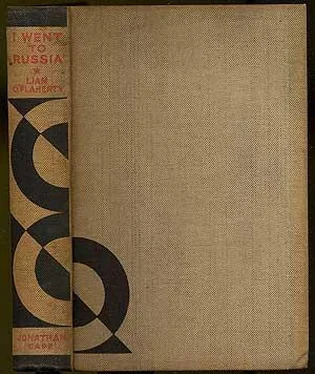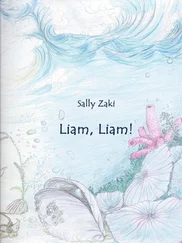‘My boy! You have been a slave without a country all your life, because you have been born with the spirit of a free man and you have been forced to live with slaves. Admit it. You have felt all your life that the earth you trod did not belong to you, neither in Ireland nor in England nor anywhere else. What are you even as an artist? A despised and tolerated outcast, forced to beg for food from dullards that are not fit to lick your feet. Here is your chance to ally yourself with people who are your equals. They want to make the whole of humanity feel that the earth belongs to them; at least those with free spirits like yourself. You are rough and hearty like these fellows. Why cling to Christ-ridden Europe, whose blood has been sapped. To hell with Europe. To hell with the British Empire. To hell with Ireland. To hell with the Pope. Become a Bolshevik.
Then the captain entered the room. At last I saw a sign and portent of the power inherent in the Bolshevik idea.
Chapter III. The Bolshevik Skipper
‘That is the captain,’ whispered the first mate, who sat beside me.
I saw an extremely tall man take off a shabby overcoat and hang it on one of the pegs behind the door. Then, with a hollow cough, he slowly turned about and scanned the table. Rarely in my life have I seen such an impressive countenance, head and body. His hair was shorn to the bone of his skull, so that it was impossible to determine its colour. But he had not shaved for a week or more, so that his jaws and upper lip were covered with a grey stubble. His face was like that of a monk, sombre, brooding, as of one who looks out from a holy place on a wicked world. He had a powerful jaw and an equally strong mouth, as is generally the case with fanatics of more than ten years’ standing. The continual tension caused by the presence in their minds of a fixed idea forces the muscles of their jaws and lips to develop. His eyes were also those of a fanatic. For it was obvious that they were by nature gentle and almost feminine, whereas concentration on ideas of desperate violence had succeeded in giving them an outward appearance of ferocity. They looked fiercely. Then they blinked and became gentle, ruminating. Then again they quivered and became fierce. He had a beautiful forehead, high, broad, capable of holding great knowledge behind its wall. His nose was ugly, short and stubby.
From this head, his body dropped away to a great length, almost supine but with the suggestion of loose strength given by a sleeping panther. It would be dangerous to rouse him. His hands were so big and his arms were so long.
He wore a shabby grey Tolstoyan blouse and an equally shabby pair of trousers. Contrasting his shabby clothing with the pride in his countenance, I could not help feeling that he dressed shabbily through vanity; that same monkish trait which makes ‘the fanatics of poverty’ go abroad in sackcloth and ashes, in tattered rags, or in simple white gowns; as if to say to the whole of wicked humanity:
‘Behold us. We are so holy, so pure and so godly that we need no fine raiment to make our beauty manifest.’
I expected him to speak to me, since I was his passenger and a guest in his mess room; but he sat down unobtrusively on my left in the seat vacated by the chief engineer. Without knowing it, I had occupied the captain’s seat at the head of the table. He neither spoke nor looked at me. Nobody else took any notice of him. Neither did he notice anybody else. He helped himself from the dish in the centre of the table. The conversation went on. Now those that were left in the room were bantering a new arrival.
At first I thought the new arrival was a good looking boy, rather effeminate, even more effeminate than the painted apprentice I had seen the previous evening. Then the chief mate leaned over and whispered:
‘You see who come now. The third mate. She is a woman.’
Now I examined the new arrival in astonishment. It was obviously a woman and except for the fact that she wore trousers and pilot jacket buttoned to the throat, she did not look very different from the manly women one sees about London. But her face was different from the faces of our lonely ones. Although her features were delicate and pretty, her face showed great force of character, together with that harshness always acquired by a woman in a position of authority over men. Her manners were like those of the men; at least she attempted to be like them. But as I watched her, I noticed that she toyed with her food a little pettishly and seemed a trifle irritated by the lack of refinement. She had not the free and natural gusto of the males. But she was doing her best to be manly. The first mate obviously disapproved of her, for he kept winking at me and raising his eyebrows sarcastically. The others made fun of her without mercy. I was astonished to see the ease with which they treated her. There was no question of sexual desire at the root of their bantering. It was as if she were a young sister who had insisted on joining an excursion which was really for men only. Even the sombre captain joined in the bantering.
Presently he said to me:
‘You have never seen a woman serving as mate before?’
He spoke slowly, but in perfect English. His voice was almost as refined as that of a woman. Indeed, it seems that all Russian voices have a feminine quality. They have none of that masculine gruffness which the voices of our men possess. Is it because the Russians lack our northern virility? ‘Of course,’ quoth our slender-waisted young exquisites, in voices of the highest soprano.
‘No,’ I said. ‘I have never seen women officers before on ships. We have none.’
‘I know,’ he said with a smile. ‘It is the result of our revolution. There are already two in our merchant service. I don‘t know whether it will be a success, having women as officers. I don‘t know why any woman would want to take on this bloody job. Still, if they want to do it, they are perfectly free. She is a good officer, but a bit strict. A little too strict, perhaps.’
‘She would be,’ ‘I said, in order to prove that she is not feminine. That is the worst of women working in charge of men.’
‘Yes,’ he said. ‘But our position is very difficult. We have to try and organise a vast country, millions and millions of people, to give them machines and ships and education and all the products of modern civilisation. And we have hardly anybody to do it with. We want engineers, we want doctors, we want teachers, we want officers for ships, we want practically every damn thing you can think of. So everybody has to work twice as hard as he or she should do. So this woman is a mate.’
‘But,’ I said, ‘the great thing is that you are working.’
‘I am glad you see even that,’ said he. ‘You are a writer. As a general rule, writers who come to Russia, unless they are members of our Party, see only the desolation left by the Revolution and the Civil War. They see none of the feverish work we do. The great Wells saw only a Caucasian dance to please him. For the rest, he could see only squalor and oriental dreamers in the Soviet Union.’
He pushed away his plate, began to roll a cigarette and grinned at me.
‘It’s very funny,’ he said. ‘Comrade Lenin brought Wells down to the Caucasus to see the Conference of Eastern Peoples in 1920. Wells saw only a dance that was given as entertainment for the delegates. He did not see the Conference. He said it was a dream of the dreamers in the Kremlin. Now that dream is beginning to bear fruit, in India, in China, in Afghanistan. Wells did not foresee that. Lenin did. Tell me. What do you think of Revolution in England?’
‘From within or from without?’
‘How do you mean?’ he said.
He looked at me closely, as he placed the stem of his cigarette holder between his ascetic yet strangely sensual lips. I had a curious feeling that he was like a satyr, or a Jesuit, or some astute animal. An Oriental? Playing with me? No, no. It was just insane pride. He was the embodiment of some insane idea. That was why he was so strong. Otherwise I was stronger.
Читать дальше












